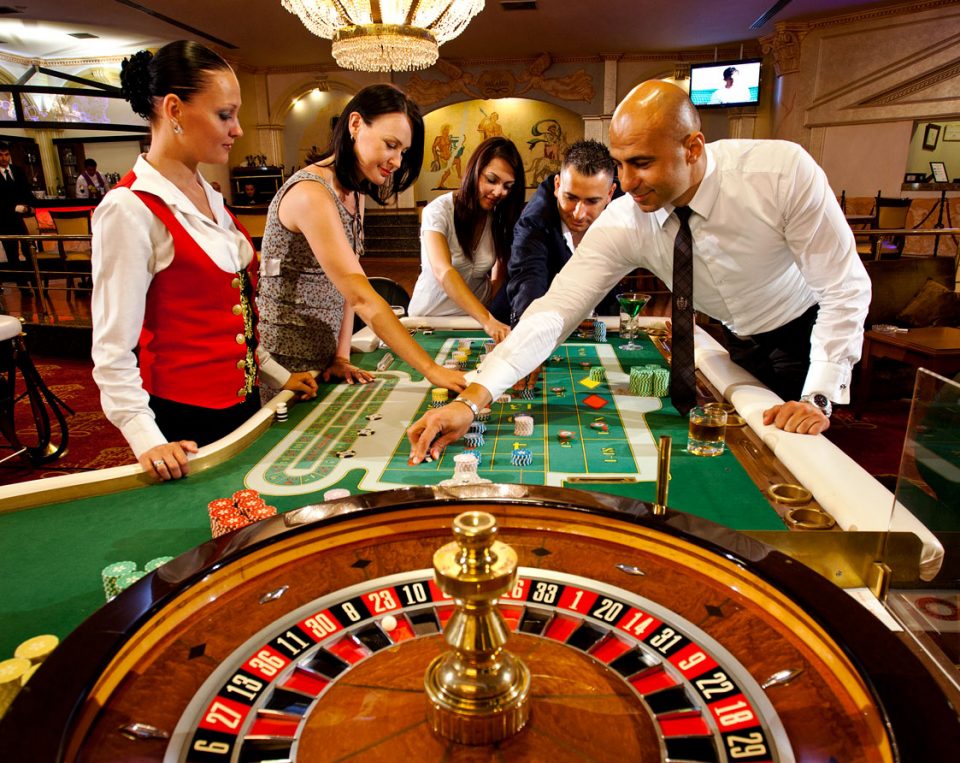
The attraction of casino games has mesmerized millions around the world for decades. From the whirling roulette device to the sound of shuffling deck of cards, the excitement of luck and talent merges to create an thrilling environment that pulls individuals in. These games are not just hobbies; they have evolved into an integral part of the leisure industry, transforming into a worldwide phenomenon that spans luxurious hotels, dynamic internet casinos, and various other options.
As the need for one-of-a-kind and immersive experiences keeps to grow, the narratives behind the success of gaming experiences reveal a intriguing landscape. Businesspeople and creators are always extending the frontiers of imagination and innovation, leading to the emergence of new gaming options and immersive technologies. Investigating these accounts gives us insight into the requirements to create a gaming enterprise and the dedication that propels those working behind the curtains.
The Evolution of Gambling Games
Gambling games have a robust history that goes back hundreds of years, with their origins often connected with ancient rituals and social gatherings. The earliest types of betting can be traced back to long-ago China, where games involving dice were played, and also to the Roman Empire who partook in betting on various events. Over time, these primitive games evolved into more structured forms, resulting in the development of titles including baccarat and roulette in the 17th century. These initial casino games laid the foundation for the industry we see today.
As the world advanced, so did the sophistication and variety of gambling options. The 19th century marked a significant shift with the founding of official gambling establishments in locations like Monte Carlo and Las Vegas. This era saw the emergence of popular games such as poker and blackjack, which enthralled the interests of players around the world. FUN88 The surge of these games was driven by innovations in game development and the creation of betting regulations that rendered the industry more regulated and attractive to the general populace.
The technological revolution in the late 20th and early 21st centuries altered the landscape of gambling options yet again. The emergence of the internet brought about virtual casinos, enabling players to experience their preferred games from the comfort of their houses. This transition not only expanded the scope of gambling options but also introduced new types like live dealer games and mobile gaming apps. Today, the casino game industry continues to evolve, with cutting-edge technologies such as virtual reality and blockchain potentially set to transform the prospects of betting.
Successful Casino Game Creation Techniques
The basis of a thriving casino game empire lies in the design of entertaining and creative games that engage players. A winning strategy involves extensive market research to grasp existing trends and player preferences. By reviewing user feedback and studying successful titles, developers can determine what appeals with players and what features are in demand. Including unique themes, varied game mechanics, and artistically appealing graphics are crucial to excel in a competitive landscape.
Teamwork is yet another key component of successful game development. Bringing together talented designers, programmers, and mathematicians ensures that games are both visually captivating but also fair in terms of gameplay. Encouraging honest communication among team members fosters creativity and yields cutting-edge concepts. Moreover, connecting with players during the beta testing phase enables developers to gather valuable insights that can enhance gameplay elements before the official launch.
Lastly, effective marketing strategies cannot be overlooked in establishing a flourishing casino game empire. Developing a persuasive narrative around the game and utilizing digital media platforms to create buzz can dramatically impact player acquisition. Offering deals, loyalty rewards, and involving in community events can further enhance player retention. By integrating strong development practices with astute marketing, game developers can create an enthralling experience that keeps players coming back for more.
The Prospect of Gambling Gaming
The environment of gambling play is evolving quickly, driven by developments in tech and evolving player tastes. Digital and mobile gaming is set to dominate the industry as more gamblers seek accessibility and access. Virtual reality and augmented reality are also making their way into the gambling experience, providing engaging environments that elevate classic gameplay to a new level. As players crave more interactive and engaging interactions, casinos will need to adapt and innovate to keep their audience captivated.
Additionally, the integration of artificial intelligence and data analytics will play a major role in defining the future of casino games. Casinos will use information to comprehend player behavior, personalize interactions, and boost client service. Personalization will become important, as gamblers will want games that modify to their preferences and play styles. As the gaming industry utilizes these insights, the creation of new play types and features will likely appear, keeping the casino experience fresh and thrilling for all.
Moreover, the movement towards responsible gaming is becoming increasingly notable. As regulators and players focus more on player well-being, casinos will need to adopt measures that promote responsible gaming practices. This could include features that allow gamblers to set boundaries on their spending and playtime, as well as better resources for those who may be struggling with gaming issues. By focusing on safe gaming, casinos can establish trust with their clientele and ensure a viable future in the challenging environment of casino gaming.